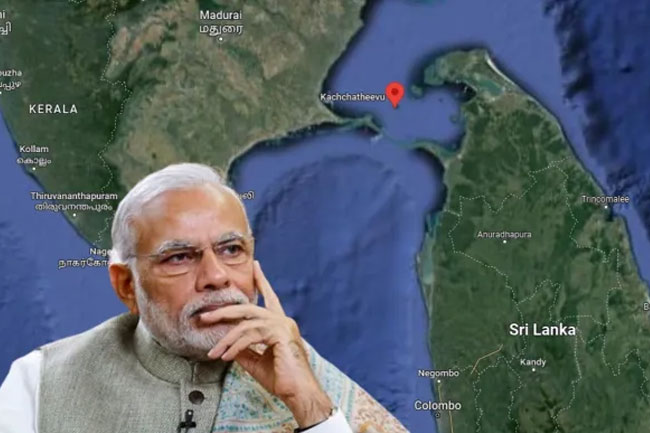Indian Prime Minister Shri Narendra Modi noted the swift actions taken during global emergencies including during the economic crisis in Sri Lanka.
Modi addressed the International Abhidhamma Divas ceremony at Vigyan Bhavan in New Delhi, Thursday, commemorating Lord Buddha’s teachings and the recent recognition of Pali as a classical language by the Government of India.
The Prime Minister expressed happiness that this year’s Abhidhamma Divas was special as the language, Pali, in which Lord Buddha gave his sermons has been recognised and accorded the status of Classical language by the Government of India in this month itself. Therefore, he added, that today’s occasion was even more special.
The Prime Minister remarked that the honor accorded to Pali by recognition as a classical language was a tribute to the great legacy and heritage of Lord Buddha. He further added that Abhidhamma is contained in the Dhamma and to understand the true essence of Dhamma, it was necessary to have knowledge of Pali language. Explaining the various meanings of Dhamma, Prime minister said Dhamma meant the message and doctrine of Lord Buddha, the solutions to questions related to human existence, the path to peace for human race, the eternal teachings of the Buddha and a firm assurance for the welfare of entire humanity. He added that the entire world was being constantly enlightened by Buddha’s Dhamma.
Reflecting on India’s historical relationship with Buddhism, PM Modi noted the country’s efforts to revitalize Buddha’s heritage, including development projects in significant Buddhist sites like Kushinagar and Lumbini. He emphasized that the teachings of Lord Buddha are crucial for addressing global challenges, especially in promoting peace and sustainability.
Prime Minister said that this period of Amrit Kaal will be the period of India’s progress, a period of building a developed India where the teachings of Lord Buddha would guide in the roadmap that India has made for its development. He further added that it was possible only on the land of Buddha that today the world’s largest population is conscious about the use of resources.
Reciting a teaching of Lord Buddha, Prime Minister said that any form of goodness should be started by ourselves was at the core of the idea of Mission LiFE. He added that the path to a sustainable future will emerge from the sustainable lifestyle of every person. Noting India’s contribution to the world like the platform of the International Solar Alliance, formation of the Global Biofuel Alliance during its presidency of G-20, the vision of One Sun, One World, One Grid, Shri Modi said that all of them reflected the thoughts of Lord Buddha. He added that every effort of India was towards ensuring a sustainable future for the world. The Prime Minister pointed out various initiatives like the India-Middle East-Europe Economic Corridor, India’s Green Hydrogen Mission, the target of making Indian Railways net zero by 2030, increasing ethanol blending in petrol to 20 percent, all of them showcased India’s strong intention to protect this earth.
Prime Minister emphasized that many of the government’s decisions are inspired by Buddha, Dhamma, and Sangha and gave the example of India being the first responder in times of crisis in the world.
He highlighted the country’s swift actions during global emergencies such as the earthquake in Turkey, the economic crisis in Sri Lanka and the COVID-19 pandemic. He noted that this reflects Buddha’s principle of compassion. “As a Vishwa Bandhu (friend of the world), India is taking everyone along with it”, he remarked. He said that initiatives like Yoga, millets, Ayurveda, and natural farming are inspired by the teachings of Lord Buddha. He stressed the importance of intertwining modern progress with cultural roots, stating, “India is moving towards development while strengthening its roots.”
The International Abhidhamma Divas celebration organized by the Government of India and International Buddhist Confederation witnessed the participation of academicians and monks from 14 countries and a significant number of young experts on Buddha Dhamma from various Universities across India.


